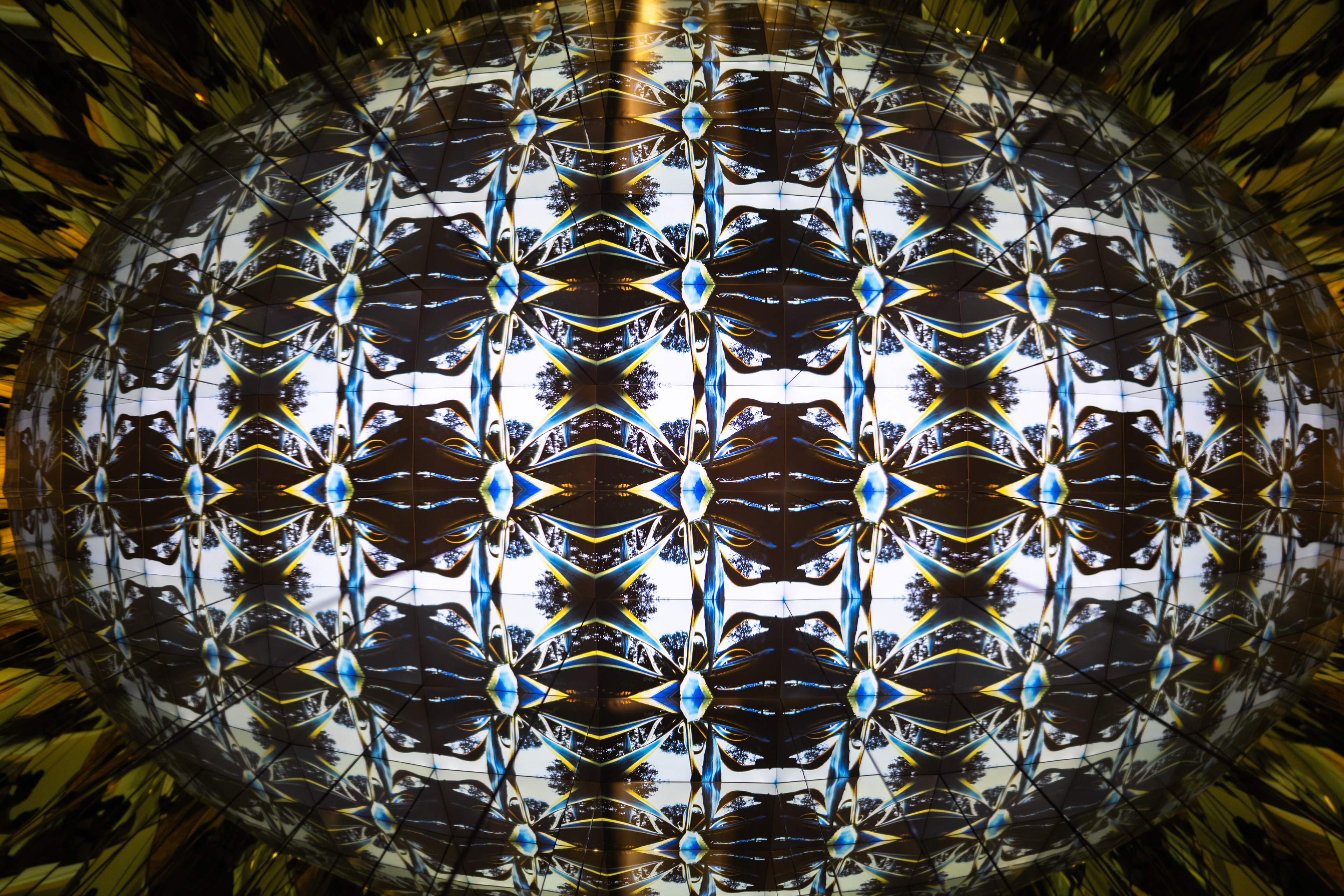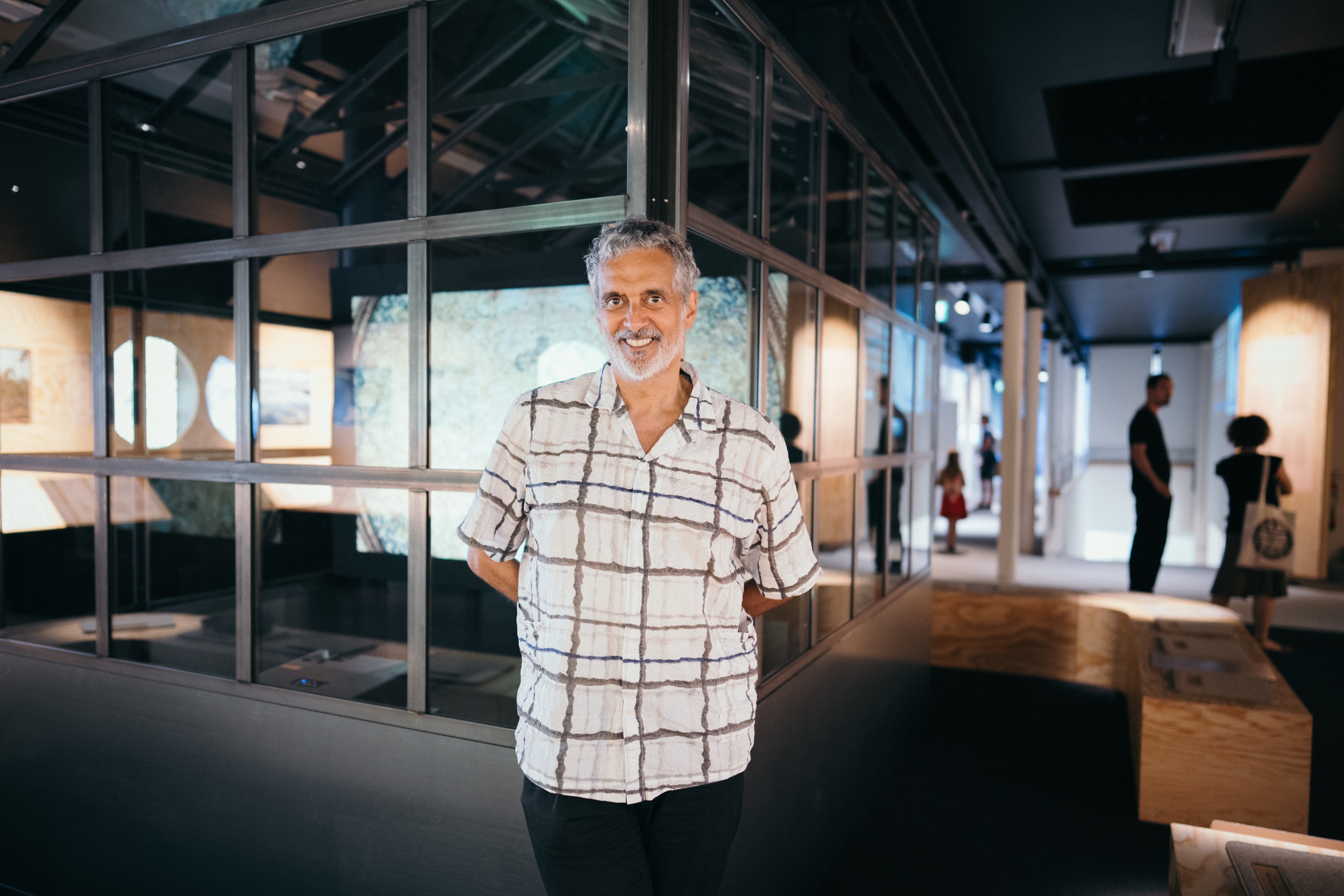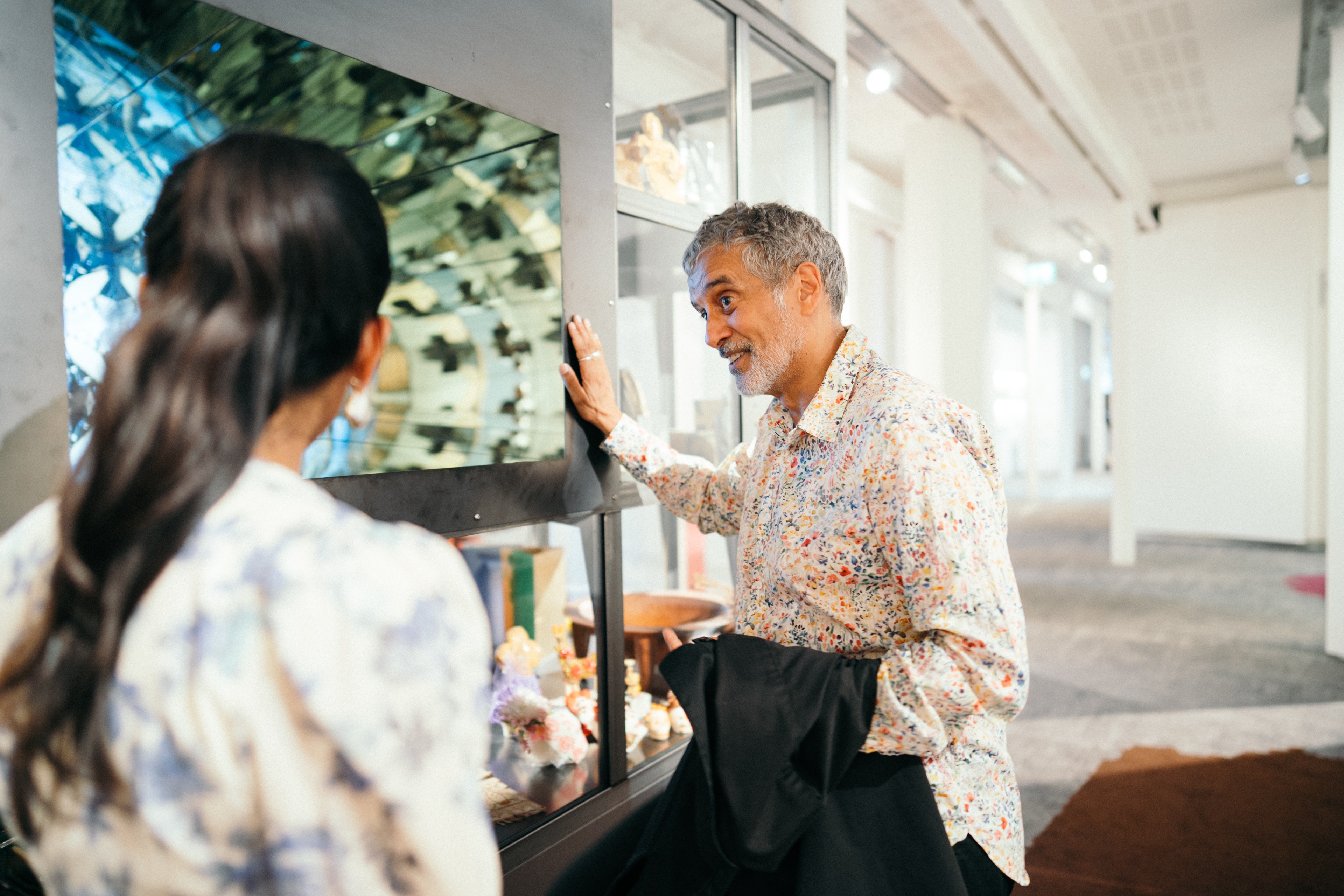The Garden of Life and Death #1, #2 and #3
An immersive multimedia video installation by Theo Eshetu.
The SYSTEMA ALIMENTARIUM exhibition features the world premiere of The Garden of Life and Death #1, #2 and #3 (2025), a monumental video work by Theo Eshetu, specially commissioned by the Alimentarium. A British artist of Ethiopian origin, Eshetu is internationally renowned for his immersive installations, such as Atlas Fractured, presented at Documenta 14, and his works exhibited in prestigious institutions such as MoMA, the MET in New York and the Museo delle Civiltà in Rome. His new work explores the tensions between food abundance and food insecurity, combining symbolic images and sensory narratives.
“Working with Theo Eshetu has been an immense pleasure. His work, which is both poetic and engaging, is a profound addition to our exhibition. We are proud to have commissioned this major creation for the Alimentarium.” - Boris Wastiau, Director of the Alimentarium and author of the exhibition
“The Garden” is a cycle of three video installations set up in different locations of the Alimentarium, creating an “electronic garden” on each floor of the museum.
The works function as self-standing video pieces that are in dialogue with one another. They follow an imaginary journey from life to death, from figurative to abstract, with flowers and plants as the central metaphor for life.
Although flowers are not directly linked to food production or eating cycles, they express nature’s beauty and the life-giving force of the plant world. Sporadic images of animals, fruits, and vegetables punctuate the overall flow of images.
The constant looping of the visuals and their repetitive appearance across the different works—within each image as well as across the various screens—highlights the cyclical aspect of life and survival.
This forms the overarching artistic premise of “The Garden.”
A key element is the idea of mirroring: not only as a device that enables the multiplication and fragmentation of images into kaleidoscopic shapes, but also as a “magical” mechanism that pushes the representation toward an all-embracing mandala-like vision of nature.
This dimension is reinforced by the soundtrack: a non-musical atmosphere that conveys notions of birth and death with a clear emphasis on life. Regardless of its autonomous qualities, the sound’s function is to carry the images and transmit meaning.
The viewer is invited on a journey to experience nature as nature itself. The images are transformed through visual effects to tap into the source of life and art.
Like a real garden, the works are experienced as a space of calm and stillness.
"The metaphor of the garden here wishes to move away from the garden of religious idealism, of an imagined Paradise, lost to human sensibility or erased by urban advancements. Here, ‘The Garden’ is a terrain of earthly delights, a celebration of natural forces, and a real space that can provide inspiration and nourishment. A living space that becomes a springboard for an entry into an imaginary world of fantasy highlighted by a range of digital and analogue effects as a source for artistic creation. There has been a long tradition of gardens as poetic landscapes that inspired romantic painters. With this project, the idea is to expand on the impressionist character of Monet’s landscape paintings through the aesthetic language of video art. The garden is explored through ‘electronic art’ to suggest that nature is controlled by technology but also that nature can fuel our contemporary imagination. The aim is to represent the underlying energy behind plant life. To take nature out of its status as the background of our urban growth and reaffirm its position as its force as the vital and intoxicating essence of life. The work taps into the ongoing debate around the Anthropocene, which has given centrality to man’s intervention on nature. But even though agricultural processes have transformed landscapes to support human needs, the life-giving (and taking) forces still lie within plants’ power to sustain human existence. We depend on plant life to sustain our being. Plants have existed before us and despite the damaging effects of Man’s interventions on the landscape, they will still no doubt outlive us. The Garden project can be seen as a sign of respect and admiration for nature. This is a hypothesis or maybe a wish, but the work aims to celebrate the life-giving properties of plants without any direct reference to ecology. The work is not necessarily an appeal to environmental consciousness but aims to imitate nature by expressing its invisible inner force." - Theo Eshetu






